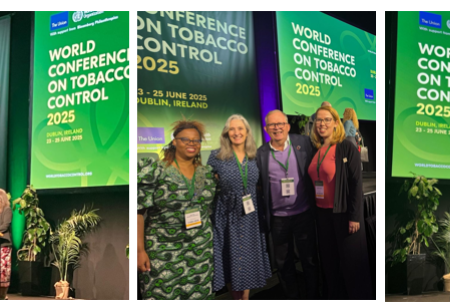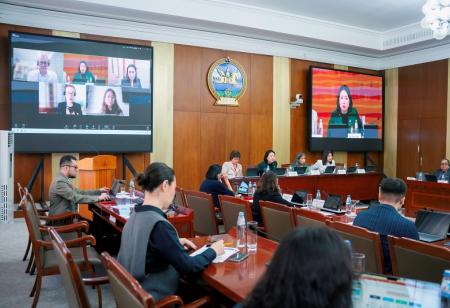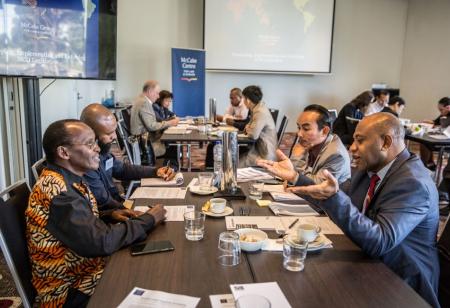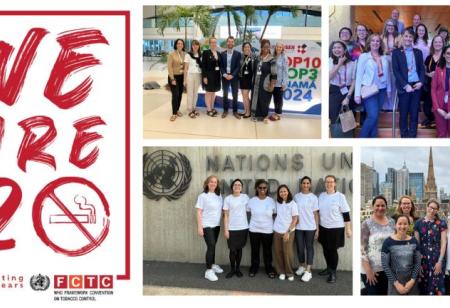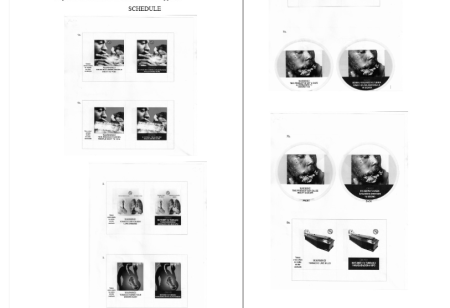
Australia’s plain packaging laws at the WTO: progress to date - 2 October 2017
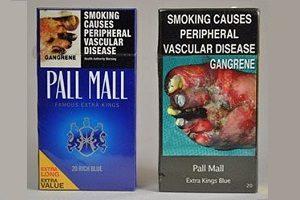
This post summarises the developments in the Australia — Plain Packaging WTO cases up to 3 October 2017. The panel has since circulated its report – our summary of the report is available here
The measure
On 29 April 2010, the Australian Government announced that it would introduce mandatory plain packaging of tobacco products as part of a comprehensive strategy to reduce smoking rates in Australia. The Tobacco Plain Packaging Act 2011 was passed by the Australian Parliament in November 2011 and received Royal Assent in December 2011. All tobacco products sold in Australia have been required to comply with the legislation since December 2012. The legislation bans the use of logos, brand imagery, symbols, other images, colours and promotional text on tobacco products and tobacco product packaging. Packaging must be a standard drab dark brown colour in matt finish. Packs are distinguished by brand and product name printed in a standard colour, position, font size and style. Graphic health warnings are required on 75% of the front and 90% of the back of tobacco packaging.
The objects of the Act are to improve public health by (s3(1)): discouraging people from taking up smoking, or using tobacco products; encouraging people to give up smoking, and to stop using tobacco products; discouraging people who have given up smoking, or who have stopped using tobacco products, from relapsing; reducing people’s exposure to smoke from tobacco products; and to give effect to certain obligations that Australia has as a party to the World Health Organization’s Framework Convention on Tobacco Control (FCTC).
These objects are to be achieved by (s3(2)) regulating the retail packaging and appearance of tobacco products in order to: reduce the appeal of tobacco products to consumers; increase the effectiveness of health warnings on the retail packaging of tobacco products; and reduce the ability of the retail packaging of tobacco products to mislead consumers about the harmful effects of smoking or using tobacco products.
Plain packaging is recommended by guidelines on Article 11 (packaging and labelling) and Article 13 (tobacco advertising, promotion and sponsorship) adopted by the Conference of the Parties of the WHO FCTC.
Legal challenges against plain packaging
Three sets of challenges were brought against the plain packaging legislation: a constitutional challenge in the High Court of Australia brought by British American Tobacco, Imperial Tobacco, Japan Tobacco and Philip Morris; an investment challenge by Philip Morris Asia under the Hong Kong – Australia bilateral investment treaty, and a set of WTO disputes brought by Ukraine, Honduras, the Dominican Republic, Cuba and Indonesia.
The constitutional challenge was dismissed in August 2012, and the investment challenge was dismissed in December 2015. The WTO case is ongoing, with Honduras, the Dominican Republic, Cuba, and Indonesia as complainants. There is a separate panel proceeding for each complainant, but each of the proceedings shares a common set of panellists and the proceedings will take place on a coordinated schedule. Ukraine discontinued its WTO proceedings in May 2015.
The disputes in the World Trade Organization
The complaining countries argue that Australia’s laws breach the WTO’s Agreement on Technical Barriers to Trade (TBT Agreement) and Agreement on Trade-Related Aspects of Intellectual Property Rights (TRIPS Agreement), in that they are more trade restrictive than necessary and unjustifiably infringe upon trademark rights.
Australia argues that its laws are a sound, well-considered measure designed to achieve a legitimate objective, the protection of public health. It is defending the complaints.
It has been reported that Philip Morris and British American Tobacco have been providing support to Dominican Republic, and Ukraine and Honduras respectively.
Latest developments
On 5 May 2014, the Director-General of the WTO appointed panellists to examine the complaints made against Australia’s plain packaging laws by Ukraine, Honduras, Dominican Republic, Cuba and Indonesia. The panellists for all five cases are Mr Alexander Erwin (Chairperson), Mr François Dessemontet and Ms Billie Miller. The WTO Secretariat’s Notes on the constitution of the panels are available here.
On 29 May 2015, the Panel informed the WTO’s Dispute Settlement Body that it had granted Ukraine’s request, communicated to the Panel on 28 May 2015, to suspend the proceedings in Ukraine’s complaint.
Final submissions were filed in March 2016. Two sets of summary submissions are publicly available:
- An executive summary of the Australian Government submissions in the dispute
- An executive summary of the Dominican Republic’s submissions in the dispute
(Note: following publication of the report on 28 June 2018, all Australian government submissions in the case have been published)
On 21 September 2017, the panel advised that it would circulate its report to parties by the end of September 2017. After circulation to the parties, the report must then be translated into French and Spanish before being circulated to the wider WTO membership (at which point it is published on the WTO website and made available to the public as well).
Once the panel report is circulated to members, it will be adopted by the WTO’s Dispute Settlement Body (made up of representatives of all WTO members), unless a party chooses to appeal the findings of a panel to WTO’s Appellate Body.
Under the WTO’s Understanding on rules and procedures governing the settlement of disputes (DSU), parties have up to 60 days from the circulation of the panel report to notify their intention to appeal. Article 17.5 of the DSU states that the Appellate Body is to circulate its report within 90 days of the notification of appeal, although in practice it has often taken longer.
Documents for this dispute:
- World Trade Organization summary of dispute (Ukraine)
- World Trade Organization summary of dispute (Honduras)
- World Trade Organization summary of dispute (Dominican Republic)
- World Trade Organization summary of dispute (Cuba)
- World Trade Organization summary of dispute (Indonesia)
- World Trade Organization TBT Official Documents (for minutes of TBT Committee meetings)
- World Trade Organization TRIPS Official Documents (for minutes of TRIPS Council meetings)
Recommended reading:
- Andrew Higgins, Andrew Mitchell and James Munro, Australia’s Plain Packaging of Tobacco Products: Science and Health Measures in International Economic Law, Science and Technology in International Economic Law: Balancing Competing Interests (Chapter, 2013)
- Mark Davison and Patrick Emerton, Rights, Privileges, Legitimate Interests, and Justifiability: Article 20 of TRIPS and Plain Packaging of Tobacco, American University International Law Review (2013)
- Andrew Mitchell and Tania Voon, Face Off: Assessing WTO Challenges to Australia’s Scheme for Plain Tobacco Packaging, Public Law Review (2011)

